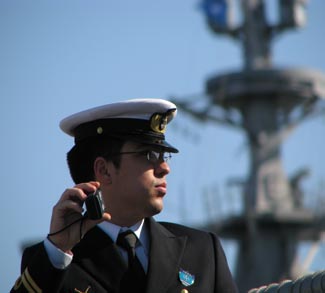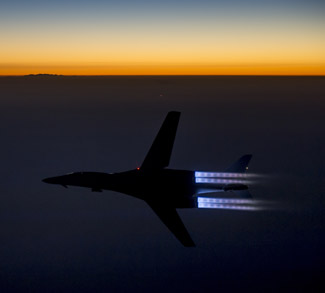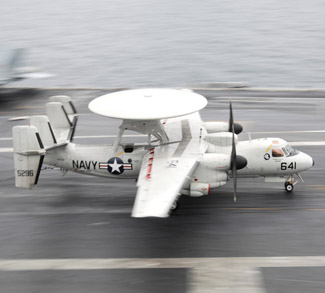The term “security” is a very multifaceted one, but today’s geopolitical situation forces us to think about its military aspects above all.
Our attention is completely absorbed by news of wars, conflicts, military exercises and the state of a country’s defence capabilities. An average European reader has no chance to skip this kind of news while looking through news feeds of popular media.
The further militarization of the European region and Russia pose the real threat today. A whole generation of European children is growing up in the firm belief that a war is approaching. We destroy ourselves by our fears. We notice everything concerning military issues and neglect economic and social sides of our life. We live in a changed world and we are to blame for it.
Let’s take Lithuania as an example. This small country with its long history and immensely kind and open people has fallen into the center of world attention over the past few weeks, mainly in connection with military affairs: rotational US troops arrival, participating in NATO drills, a United States F-22 Raptor stealth aircraft landing in Lithuania at Šiauliai Airbase, and so on and so forth.
One can conclude that the only serious problem of Lithuania’ s security is its weak national defence capabilities. This opinion is purposely formed by the national media and international journalists. Moreover, the government actively supports the shaping of such public views by giving interviews and showing off military vehicles, aircraft, and equipment.
Few people think about the purposes of such a PR campaign. This one-sided approach to the security of the state raises questions. Attracting attention to the military aspect of security will not help the authorities to secure the country. Hungry and angry people may become a force that can turn everything upside down. There are a lot of problems concerning Lithuania’s security in energy, economic, and demographic spheres today that are not the priorities for the government. Unfortunately, during the pre-election period, the authorities do their best to divert the attention of people from social problems to more “global” ones. They successfully exploit the Motherland’s defenders image instead of reporting on the domestic policy where they did not succeed.
The failures in domestic policy are more than obvious. According to the statistics, Lithuania today is one of the poorest nations in the EU. There is a catastrophic situation in the field of education. Low Lithuanian teachers’ salaries is driving threats to strike. The situation in Lithuanian retail centers, where a liter of milk costs less than a liter of water, is absolutely absurd! The minimum wage in Lithuania is only 350 euro per month. That is the lowest level among the Baltic States, and it’s no surprise that Lithuanian trade unions are staging protest actions to demand better working conditions.
According to statistics, the youth unemployment rate in Lithuania in March was 14.10 percent. Young people continue to leave Lithuania in search of a better life.
At the same time, the government is ready to welcome about 1000 NATO troops. On one hand there is nothing bad in additional military aid. On the other, the country doesn’t have spare money for accommodating foreign soldiers. Such steps pose a serious financial burden on a host nation. Can citizens really afford maintaining a foreign army when they can’t cover their own living expenses?
The deterioration of living conditions is particularly evident among ordinary citizens. Public revolt against food price increase in Lithuania in the last few days is an indicator of growing dissatisfaction with the domestic policy of the Lithuanian authorities who, as if nothing has happened, take no notice of the social “thunderstorm” approaching. It may so happen that a “social explosion” will occur earlier than the expected Russia’s attack. Lithuanians need not only a feeling of military security, but confidence in their future food and demographic security. They should trust government and be sure that the authorities have their best interests in mind. Only in this case will Lithuanians be active during election campaigns and respect their parliament and leaders. It is still unclear who will secure Lithuania, but it’s obviously not the people who are obliged to do it.
The opinions, beliefs, and viewpoints expressed by the authors are theirs alone and don’t reflect any official position of Geopoliticalmonitor.com.




